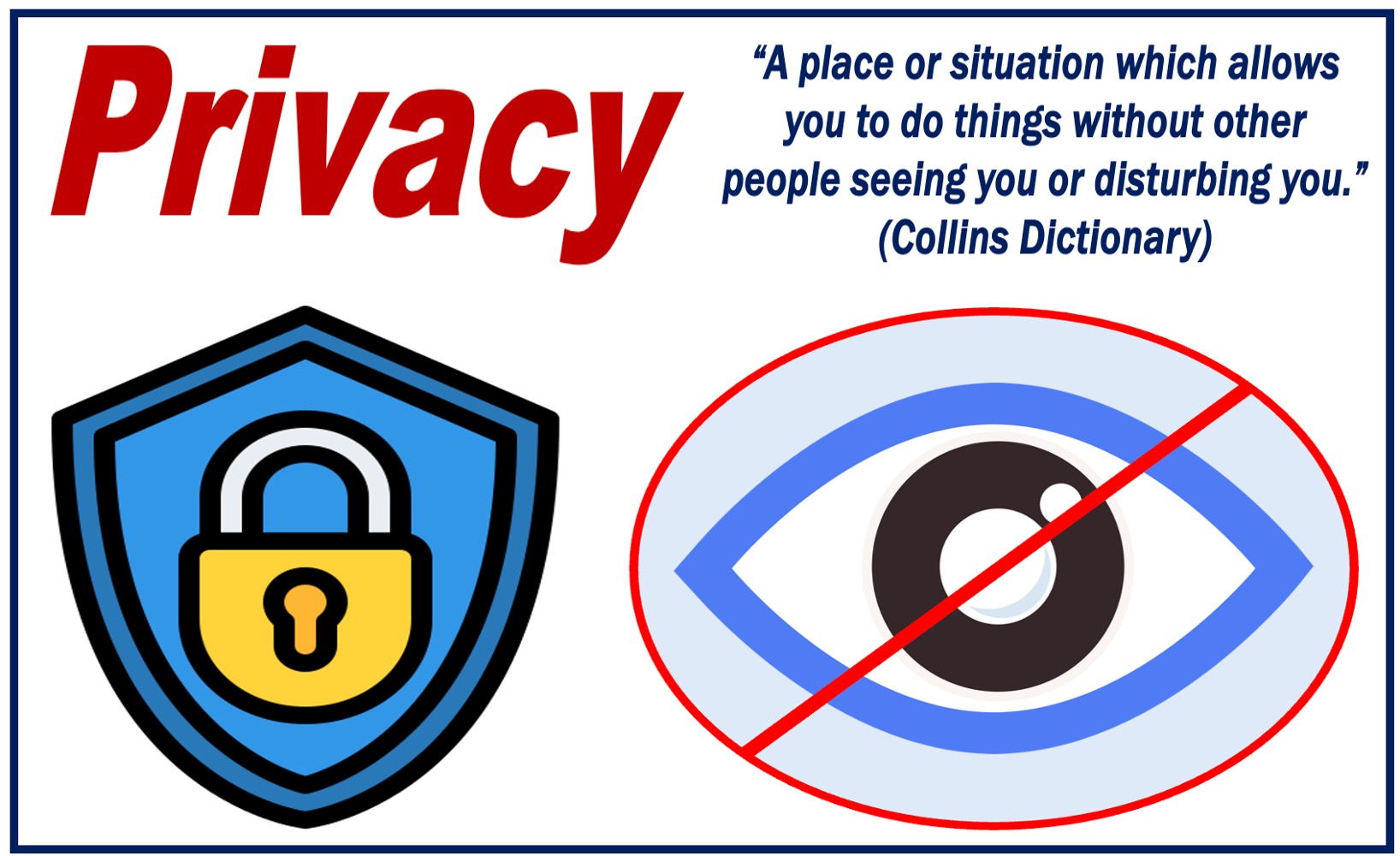Privacy is a right that we have to keep our personal information confidential, i.e., private from external influences or prying eyes. It is the notion that we have the power and choice to determine what information we share and with whom. It also means that we can choose what is kept secret.
Pillars of privacy
There are many layers of privacy, they include:
- Personal autonomy
The freedom to make choices freely, without external pressure, whether it’s in connection to relationships, medical records, or other personal data.
- Informational privacy
The right to control how your personal information is gathered, shared, and used.
- Physical privacy
The freedom to keep one’s own physical area how one likes it and free from intrusions. If somebody needs to change their clothes and say: “May I have some privacy, please?” it means either that you should look away (not look at them changing their clothes) or that they need a private room in which to change their clothes.
- Communicational privacy
The ability to speak with others without being watched over or spied on.
According to the Australian Government:
“Generally speaking, privacy includes the right to be free from interference and intrusion, to associate freely with whom you want, and to be able to control who can see or use information about you.”
“Your right to privacy isn’t absolute. Sometimes other concerns are given priority, such as the safety of you or others, or the interests of justice. But it’s important. That’s why strict rules apply in these situations.”

Why is privacy important?
Here are some fundamental/basic reasons:
- Freedom of thought and speech
Privacy protects our freedom to think and express ourselves without fear or judgment.
- Human dignity
Maintaining privacy supports people’s own worth and dignity.
- Protection against misuse
Keeping personal information private helps prevent potential fraud, misuse, or even identity theft.
- Emotional well-being
Emotional well-being or emotional wellness, according to the US National Institutes of Health is “The ability to successfully handle life’s stresses and adapt to change and difficult times.”
Modern privacy concerns
In today’s hi-tech world, privacy faces some growing and alarming challenges:
- Digital surveillance
A growing number of digital platforms gather and analyze personal data, raising worries over illegal monitoring and spying.
- Data breaches
The dangers in data storage have been brought to light by widely known cases involving breaches at various businesses.
In 2013, for example, a Yahoo data breach affected 3 billion people. Data regarding people’s dates of birth, email addresses, real names, telephone numbers, and security questions were compromised. We still don’t know who was responsible.
The following quote comes from secureworld.io: “Yahoo believes that “state-sponsored actors” compromised all of their users’ accounts between 2013 and 2014. It was difficult timing for Yahoo, as they were in the process of being purchased by Verizon, decreasing the value of the company by $350 million.”
- Social media
Social media sharing, by its very nature, can make it difficult to tell the difference between what is or what should be public and private.
- Government surveillance
In some areas of the world, there are concerns about governments actively monitoring the activities of their citizens.
Protecting your privacy
Protecting your privacy has never been more important, here are some ways you can keep your data safe:
- Check out platforms and services
Understand and read the privacy policies of all the platforms and services you use.
- Use technology that can help
Thanks to technology we now have services like virtual private networks (VPNs), encrypted messaging, and secure prospers.
- Limit sharing
Be careful about what you put online and with whom you share data
- Stay updated
Because technology is always changing, it’s important to keep up with the latest privacy trends and security precautions.
Written by Nicolas Perez Diaz, October 26, 2023.
